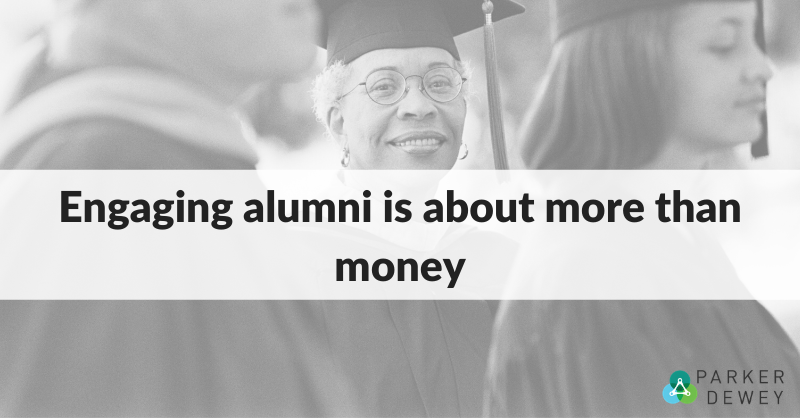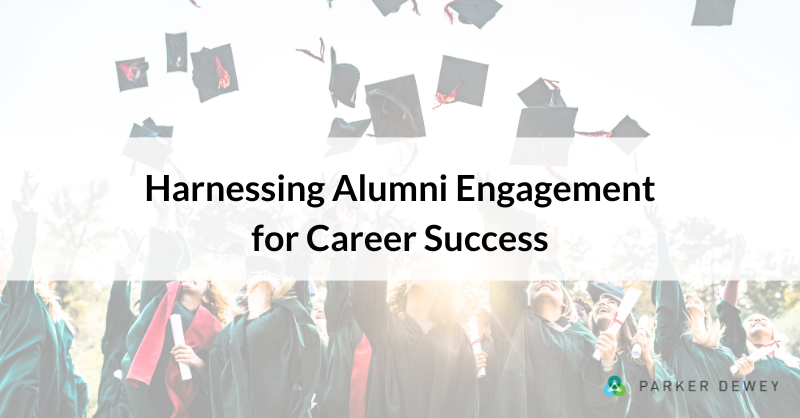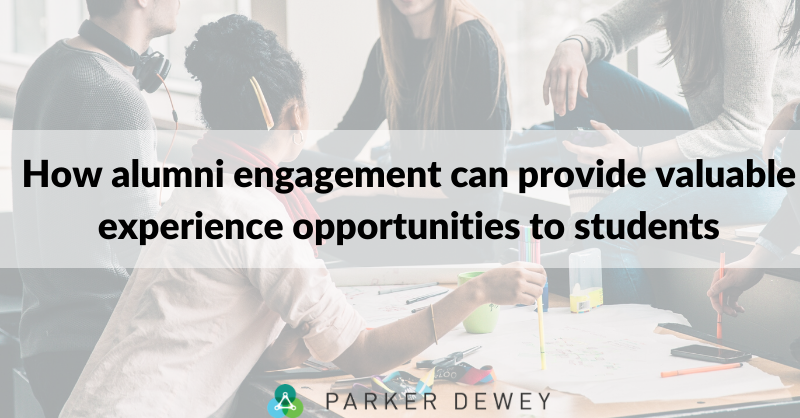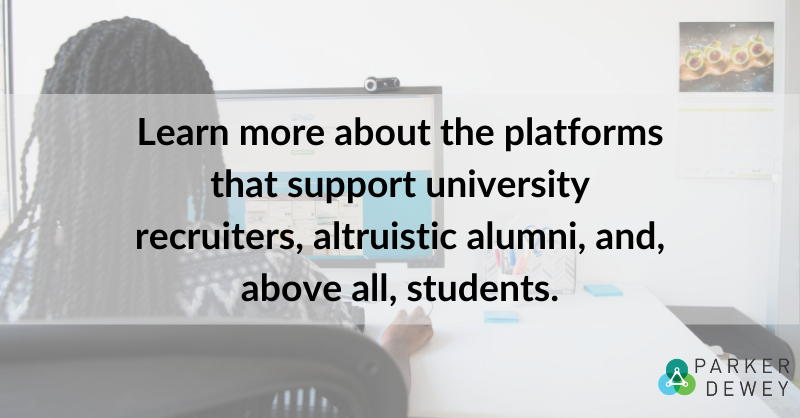
Increasing Alumni Engagement Through Mentoring Opportunities
Can you relate? After 20 years, most of my interactions with my alma mater have been limited to letters and e-mails asking me to write a check. Yes, there are events and the occasional sports announcement (go Hoosiers!), but the reality is that the school is most interested in me making a donation. I have nothing against this, but at Parker Dewey we’ve created a better way to get engagement.
It starts with a partnership between alumni relations and career services departments (I am shocked by how frequently there are “turf wars” around this, but keep reading - this really is a win-win). With insights from career services around the needs of specific companies, industries, roles, etc., alumni relations can focus on better serving alums for immediate and long-term needs. For example, alumni relations may not know that a financial services firm is having difficulty competing against emerging start-ups for tech talent, or that tech firms are increasing their efforts to find liberal arts students. Using these insights, alumni relations can develop targeted outreach efforts focused on helping alums in roles or at companies facing those issues. By leveraging the insights from career services, alumni relations can better engage alumni with bespoke solutions such as targeted networking events, Micro-Internships, and guest lecturing opportunities, all of which help alums build authentic relationships with students to address their needs.
As a result, when the school does make “the ask,” the alum feels more engaged and is more inclined to give.
The other big ask of alumni is often their willingness to provide mentoring. During the past several years, colleges and universities have spent record amounts on alumni management systems with features that go beyond those of social and professional networks (e.g., contact information, job boards, event management, etc.). In fact, based on discussions with hundreds of alumni relations professionals across schools, mentoring features were a top influencer of how they selected their alumni management software. Unfortunately, irrespective of the platform and its features, all of these tools have the same fatal flaw: students do not know what to ask. Yes, they all have the standard list of questions, but (spoiler alert) there is no “typical day,” “our company encourages a strong work/life balance,” and “there are plenty of great opportunities for those who work hard.”
Furthermore, having spent considerable time on these types of calls, these conversations also cover topics that should not be relevant to a student (my responsibilities are nothing like that of a recent grad) or focus on information that could be found elsewhere (visit the website to see open positions). The reality is that every alum understands what the students really want to know: “Will you hire me or do you know someone who will?” To be clear, this is not the fault of the student or school, but rather the fact that there are often no points of connection other than the alma mater.
However, career services can also help solve this issue given its understanding of where more “tactical mentoring” can benefit both students and employers. Instead of the standard conversations that frequently take place, career services can facilitate targeted conversations that leverage the unique perspective of a specific mentor, not only benefitting the student, but also making the mentor feel valued. For example, career services will have insights about the philosophy student looking to break into technology, and can therefore structure a mentoring conversation with a technology professional who is having difficulty recruiting computer science majors. As a result, these conversations are mutually beneficial (and a lot more interesting).
What are your thoughts?
I look forward to discussing this more on a panel regarding how Alumni, Universities, and Students can collaborate to improve hiring effectiveness and career readiness at this year’s ASU + GSV Summit.




